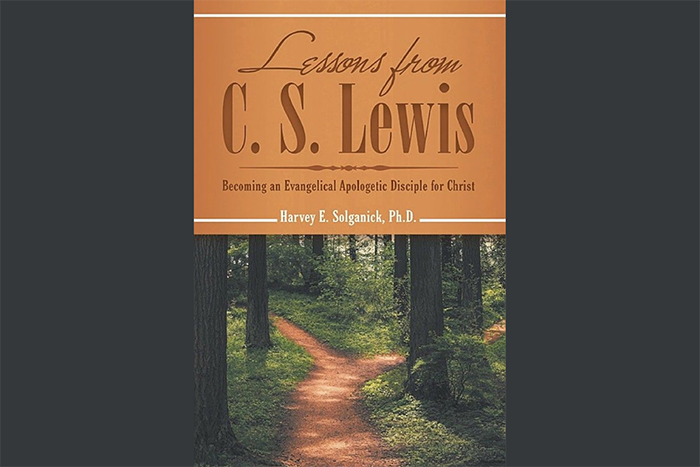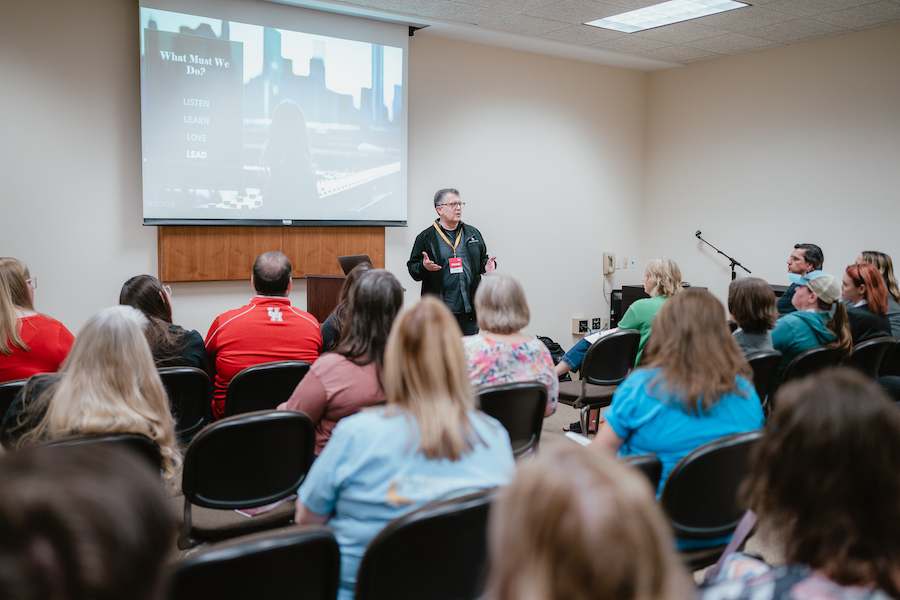New faculty-authored book explores Lewis’ relevance to evangelical Christians

C.S. Lewis’ death barely made headlines 55 years ago when he died on the same day as John F. Kennedy. But Lewis left a legacy that reaches far beyond 1960s England: One of the most influential writers of his time, he wedded significant facts with ideas that live on through his novels, stories, essays and autobiographical works.
In the new book Lessons from C.S. Lewis: Becoming an Evangelical Apologetic Disciple for Christ, Harvey Solganick, senior professor of humanities at Scarborough College, presents Lewis from an evangelical perspective concerning Lewis’ stand on philosophical and ethical issues relevant to evangelical Christians today. Solganick considers some of the unexplored tenets of Lewis’ literary, philosophical and theological legacy, focusing on the implications of Lewis’ work for evangelism and discipleship.
“Sigmund Freud intrigues me with his search for the psyche, seele or soul,” Solganick says, “but he lost it, whereas C.S. Lewis finds his soul on the journey from his childhood world of Boxer to the mature Christian world of Narnia. Perhaps Lewis can teach us to how to find our souls, be saved, evangelize others and grow in Christian discipleship.”
Solganick, who was born in Brooklyn, N.Y., to parents who were Russian and Rumanian Jews,says he wrote about Lewis’ life “because Lewis searched for the truth in Christ through many different phases parallel to my own life. He departed from his boyhood Anglican upbringing, and I departed from my Orthodox Judaism. He sought mysticism and Theosophy and New Age beliefs, like I explored in my seeking years. Then he studied myths in literature and philosophy worldviews as I did in my college years.”
“Finally, he accepted God, the supernatural theism of an intellectual belief,” Solganick says. “From the intellectual belief, he discovered the joy of his relationship with his wife, Joy Davidman, a New York communist Jewish lady, and ultimately found a personal relationship with Jesus when he lost her to cancer.”
Similarly, Solganick says he found Christ in a Jewish cemetery when, after his parents’ deaths, he fell to his knees and asked the Holy Spirit to “visit upon [him]” and he committed to love the Lord with all his mind, heart and soul. “Thus, I saw my own life reflected in [Lewis’] struggles for spiritual truth on his journey of the soul,” Solganick says. “I wanted to share my testimony but also give people a way to apply Lewis’ writings to evangelism, apologetics and discipleship.”
Lessons from C.S. Lewis was published by Archway Publishing and is available now here.



